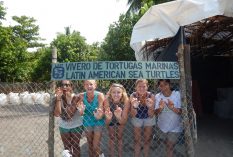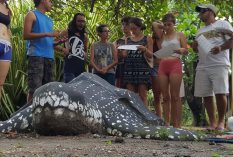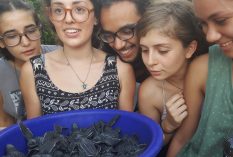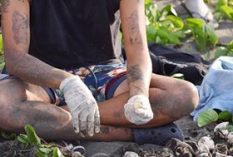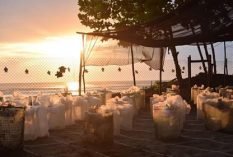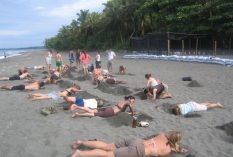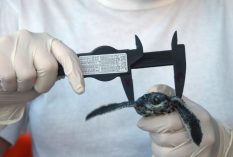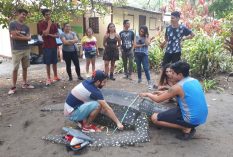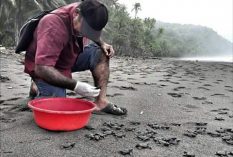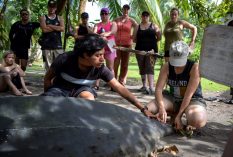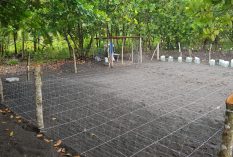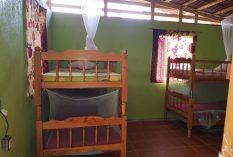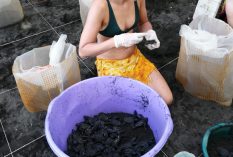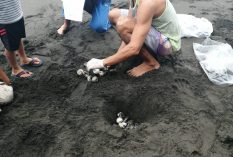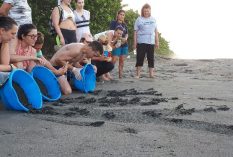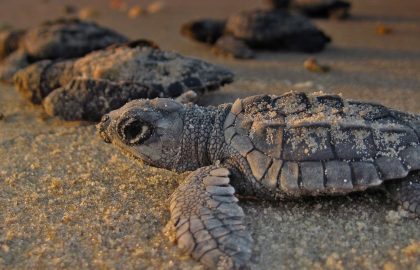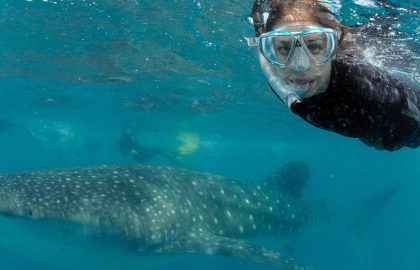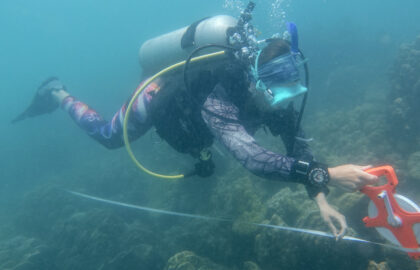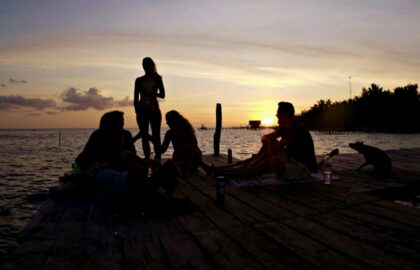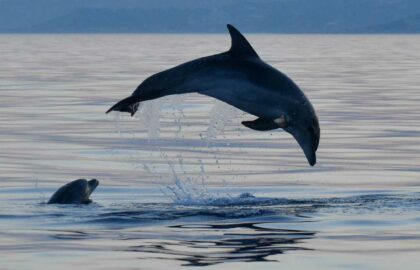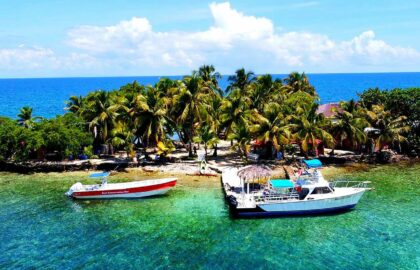Description
Location: Barra de Pacuare, Caribbean Coast, Costa Rica
Duration: Minimum 3 months commitment (or 7 days as a volunteer)
Cost: $10 USD per day (negotiable) – see ‘Costs’ tab for further details
Benefits:
- Collect data about nesting dynamics, relocation of eggs to a “hatchery”, collect data on hatchlings and release of hatchlings
- Hands-on experience in conservation efforts, including options for research, plastic contamination solutions and community projects.
- Ideal for those studying environmental science, marine biology, zoology, ecology, conservation.
- Keywords: sea turtle research and conservation, leatherback turtles, eco-systems
Introduction
The project is located in the north of the Caribbean province of Limón, 1km north of the Pacuare River Mouth. The beach is part of the 50km coastline stretching between Tortuguero National Park and the port of Limón, one of the biggest ports of Costa Rica. This astoundingly beautiful yet remote area is the home of this community-based Conservation programme. The international NGO running this project has been working for nearly three decades together with scientists, conservationists and educators to promote sustainable sea turtle projects in the wider Caribbean region.
This conservation project works together with the local community of Pacuare. Former poachers have been trained in sea turtle conservation and work together with volunteers to protect these critically endangered animals. The project does nightly and daily beach patrols and operates a hatchery. Volunteers take an important part in Pacuare, as their fees generate an income for the local inhabitants. The project strives to increase alternative livelihoods for coastal communities to take the need for poaching and hunting turtles away and to achieve a long lasting sustainable sea turtle management.
The main threats to sea turtles on this public beach are caused by humans: egg poaching and hunting nesting turtles are contributing to a population decline of all species. Especially in the Caribbean, the consumption of sea turtle meat and eggs or the utilization of turtle shell for jewelry production is rooted in long-lived local traditions and a strong belief that sea turtle eggs serve as an aphrodisiac. On top of these dangers, sea turtles also face the negative effects of global warming and contamination, which results in nest and habitat loss due to beach erosion or entanglement in fishing gear and trash. Through the involvement of local inhabitants of this very isolated, small community, the Pacuare sea turtle project provides not only a unique opportunity for volunteers to experience a community-based Costa Rican conservation project but also offers a legal and sustainable revenue for community members. The data taken from nesting females improves our understanding of their behavior and helps coordinating conservation efforts worldwide
Daily Life
Night Patrols
It is important to remember that sea turtles always come first. This may mean working long, hard hours under hot and humid conditions; but in the end, it is worth it!
A group of volunteers, led by an experienced patrol leader, walks one of the sectors of the 7.1km long beach searching for nesting females. An average night patrol will take 4 hours but can last longer in case of sea turtle encounters. Once a turtle is encountered on a night patrol, the volunteers work directly with it, taking carapace and nest dimension measurements, collecting eggs and collecting data. The collected eggs will be relocated on the beach or taken to the hatchery where the volunteers on shift will build a new nest and rebury the eggs. The number of eggs, nest location and turtle identification information (tag number) are then recorded by the hatchery attendant for further data analysis, for example determining hatchling survival rate.
This project applies a non-confrontation policy with poachers while patrolling the beach. Encounters with poachers are likely during turtle season but no communication or interference has proven to be the best way of dealing with illegal activities, as we are a conservation organization and not the police.
Hatchery Duty
The main tasks in the hatchery will be relocating nests (as described above and after having had thorough training), monitoring nests, keeping predators out (ants, crabs, dogs), taking temperatures and measurements and releasing hatchlings. The approximate incubation time for all sea turtle eggs is 60 days, therefore midway through the season the duties of the hatchery volunteer increase as the hatchlings begin to emerge. At this time, all nests in the hatcheries must be checked every 20 minutes during day and night. If hatchlings are encountered, they must be counted and released in the evening to an appropriate location along the high tide line and observed until they reach the sea. All work must be done according to standard protocols and rules and only after receiving training.
Day time work
Day time work will be for more or less two hours in the mornings, and can include beach cleanups, or involvement in small projects, maintenance of the equipment, including initial construction of the hatcheries amongst others.
Travel & Accom.
You will be given easy-to-follow instructions on how to get to the project location from San Jose . You must attend an orientation session before travelling to the project.
The project is located about 3 hours drive away from San Jose and then 45 minutes by boat (boat fee included for interns, not included for short term volunteers )
The project is located in a quiet, remote area, bordered by the sea on the front and a canal on the back, therefore, it is only accessible by boat. The accommodation is basic and simple. Electricity is only available from solar panels and has to be used rationally. You will have to wash your clothes by hand – another reason why we recommend light, fast drying clothes.
Pillows, blankets and bed sheets will be provided.
Please have in mind: There is no shop in Pacuare, so everything volunteers may need in addition to the meals or to feel comfortable must be purchased prior to their arrival in Pacuare or in Bataan.
The remoteness of Pacuare beach, the beautiful environment and the basic living conditions at the project site offer an exclusive condition for volunteers. The lack of electricity (only available during sunny days as it is solar driven and mainly for work equipment use), phones, cars, shops and other modern life facilities enriches an already extraordinary experience and allows connecting people with nature.
Requirements
- 20 years of age or older
- Good physical condition
- Conversational English and Spanish
- Educational background in Biology, Marine Biology, Resource Conservation, Ecology, Environmental Education, Veterinarian Medicine, Wildlife Management, Oceanography, Zoology and/or experience working with sea turtles
- Willing to commit for at least three months (or 7 days as a volunteer)
- Responsible, hardworking, communicative and enthusiastic person
- Willingness to share knowledge and stimulate volunteers’ interest in sea turtle protection and conservation
- Capable of living in rustic and basic living conditions under adverse climatic conditions
- Travel & medical insurance
Costs
$10 per day Project Fee depending upon experience ($50+VAT p/d if you wish to join as a volunteer – minimum 7 days, start dates Mondays and Thursdays only boat fee not included)
* Negotiable – please discuss this with us when applying.
** All payments incur a 5% bank transfer fee.
What’s Included:
Project Fee includes all food, accommodation, orientation, theoretical and practical training, in-country support and project related activities.
What’s Not included:
Flights, airport pickup, insurance, visas (if applicable) and vaccinations. Full assistance will be provided in getting all these arranged if you choose our Premium Support.
Airport pickup from San Jose International Airport can be arranged for $40.
You should budget $20 each way for transport by bus from San Jose to the project location.
Premium Support Upgrade
We understand there’s a great deal to plan and organise for your trip. When booking a Placement, many of our participants choose to purchase our Premium Support Upgrade to benefit from the expertise, knowledge and experience of our Project Coordinators.
We can provide the personal advice you need to ensure your trip is organised with excellence and planned with efficiency; ensuring the very best experience possible. Read more about how we can help you.
Pacuare, Uruca, Provincia San José, Costa Rica
Note: Map coordinates are approximate


